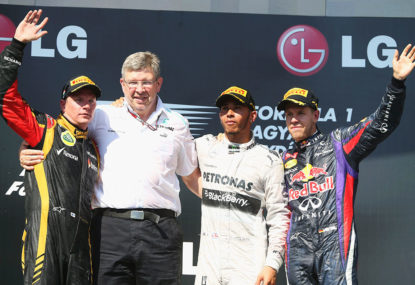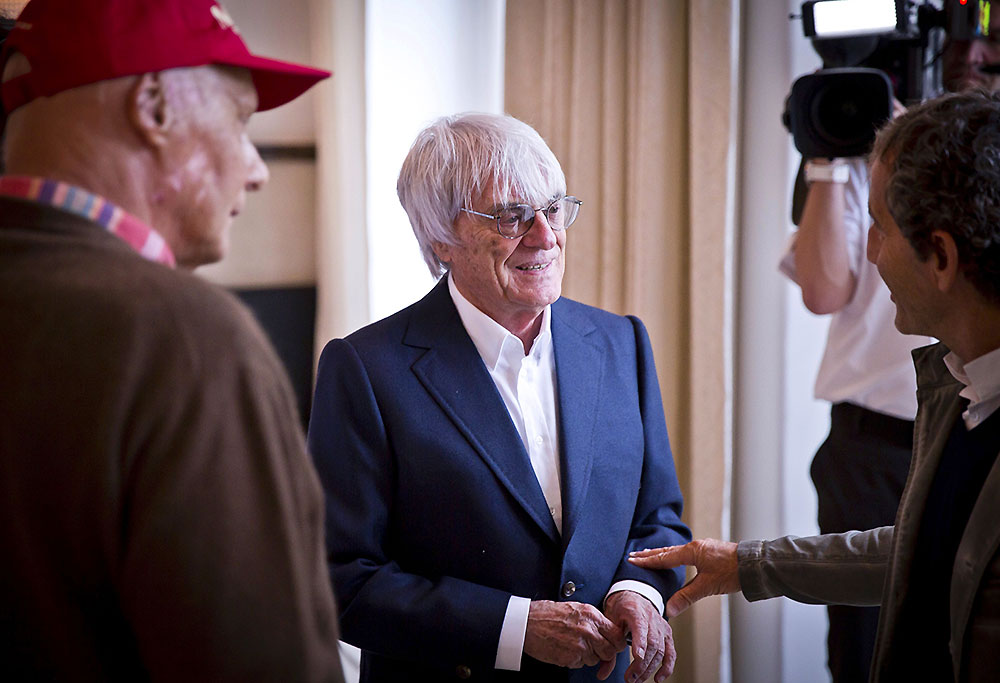Chinese Grand Prix talking points: Stroll has become the most hated F1 driver in a long time - but that's simply an unfair call!
The absolute vitriol against the Canadian that has come from the incident is beyond reprehensible.

A week which commenced with revolution concluded on a sorrowful note with the unfortunate demise of an admired Formula One outfit.
Following confirmation that Liberty Media had completed its protracted transaction to acquire commercial rights to the sport, and the subsequent departure of long-time tsar Bernie Ecclestone, optimism throughout the community was palpable.
This notion was rapidly dispelled by news that Manor had failed to source an investor prior to Friday’s administrative deadline, leaving the Banbury squad to fall from the grid having defied adversity in various iterations for seven seasons.
Reverting to ten outfits and twenty cars, the field reassumes an endangered aesthetic, accentuating the exclusivity complex which inhibits the sport. This is where one of the leaders installed by Formula One’s new CEO, Chase Carey, has the opportunity to shape an already peerless legacy.

An omnipresent voice of equanimity, Ross Brawn is an individual boasting the ability to realise from some distance which trajectory is the correct one and as such, his appointment as Managing Director of Motorsport is a learned one. From the outset, the Briton has established the necessity to observe which improvements must be made prior to stamping his imprimatur, rather than tearing down the present structures with immediate effect.
“Moving too quickly could be counterproductive”, Brawn reasons, addressing the sport’s time honoured tendency to adopt ‘half measures’ without consultation or rationalisation, contending that “the right thing to do… is to sound out the fans, to hear what they have to say.”
Reassuring as it is for supporters to have a voice, for the raw passion to exist, competition must be facilitated and one of Brawn’s primary objectives is reducing the breadth separating the fastest and slowest outfits on the grid, “because the margin… is dramatic”, he remarks. When a solitary point separates survival and extinction – as realised by Manor, there is a fundamental problem which won’t solve itself,
‘Budget cap’ and distribution of funds have long been elephants in the room, with numerous efforts to implement and reshape the concepts stillborn in recent years. An unintended consequence of the present Concorde Agreement running through 2020, is that affecting a successful cap derived from a more equitable cash pool can be well wrought by Brawn, rather than slapped on as an afterthought.
Allowing independent outfits to “stand on their own two feet”, as he elucidates, is simple in theory, yet rendered impossible by the current model.
“On the costs to the teams… seeing that those are pegged back so the cost of a well organised small team, the numbers can add up and make sense”, could be applied directly to Force India, whose owners have long played financial roulette, though continue perform admirably on-track.
Its 2016 campaign is a case in point, gleaning two podiums on its way to claiming fourth in the constructors’ standings. Once equilibrium is attained “remaining entries in Formula One become competitive… there is a viable business”, Brawn opines, pertinently surmising “at the moment I’m not sure there is and that’s what we have to focus on.”
It appears too late to rescue Manor, though with Brawn heading the sporting administration –a tailor made role if ever there was one despite success in previous posts, we can be assured that he’ll uphold his vision, and while it may require some time to realise, Formula One will ultimately be enriched in the long-term for his contribution with evolution through revolution.